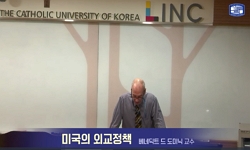Purpose: The Accreditation Council for Graduate Medical Education (ACGME) requires all residency programs to provide increasing autonomy as residents progress through training, known as graded responsibility. However, there is little guidance on how t...
http://chineseinput.net/에서 pinyin(병음)방식으로 중국어를 변환할 수 있습니다.
변환된 중국어를 복사하여 사용하시면 됩니다.
- 中文 을 입력하시려면 zhongwen을 입력하시고 space를누르시면됩니다.
- 北京 을 입력하시려면 beijing을 입력하시고 space를 누르시면 됩니다.


Use of graded responsibility and common entrustment considerations among United States emergency medicine residency programs
한글로보기https://www.riss.kr/link?id=A107376216
-
저자
Jason Lai (University of Wisconsin School of Medicine and Public Health) ; Benjamin Holden Schnapp (University of Wisconsin School of Medicine and Public Health) ; David Simon Tillman (University of Wisconsin School of Medicine and Public Health) ; Mary Westergaard (University of Wisconsin School of Medicine and Public Health) ; Jamie Hess (University of Wisconsin School of Medicine and Public Health) ; Aaron Kraut (University of Wisconsin School of Medicine and Public Health)
- 발행기관
- 학술지명
- 권호사항
-
발행연도
2020
-
작성언어
English
- 주제어
-
등재정보
KCI등재,SCOPUS,ESCI
-
자료형태
학술저널
-
수록면
1-7(7쪽)
-
KCI 피인용횟수
0
- DOI식별코드
- 제공처
-
0
상세조회 -
0
다운로드
부가정보
다국어 초록 (Multilingual Abstract)
Purpose: The Accreditation Council for Graduate Medical Education (ACGME) requires all residency programs to provide increasing autonomy as residents progress through training, known as graded responsibility. However, there is little guidance on how to implement graded responsibility in practice and a paucity of literature on how it is currently implemented in emergency medicine (EM). Wesought to determine how EM residency programs apply graded responsibility across a variety of activities and to identify which considerations are important in affording additional responsibilities to trainees.
Methods: We conducted a cross-sectional study of EM residency programs using a 23-question survey that was distributed by email to162 ACGME-accredited EM program directors. Seven different domains of practice were queried.
Results: We received 91 responses (56.2% response rate) to the survey. Among all domains of practice except for managing critically illmedical patients, the use of graded responsibility exceeded 50% of surveyed programs. When graded responsibility was applied,post-graduate year (PGY) level was ranked an “extremely important” or “very important” consideration between 80.9% and 100.0% ofthe time.
Conclusion: The majority of EM residency programs are implementing graded responsibility within most domains of practice. Whendecisions are made surrounding graded responsibility, programs still rely heavily on the time-based model of PGY level to determineadvancement.
참고문헌 (Reference)
1 John Norcini, "Workplace-based assessment as an educational tool: AMEE Guide No. 31" Informa UK Limited 29 (29): 855-871, 2009
2 Holmboe ES, "The milestones guidebook" Accreditation Council for Graduate Medical Education
3 Mary Chapple, "The Nominal Group Technique: extending the evaluation of students' teaching and learning experiences" Informa UK Limited 21 (21): 147-160, 2006
4 Karen Schultz, "The Application of Entrustable Professional Activities to Inform Competency Decisions in a Family Medicine Residency Program" Ovid Technologies (Wolters Kluwer Health) 90 (90): 888-897, 2015
5 James Li, "Survey of moonlighting practices and work requirements of emergency medicine residents" Elsevier BV 18 (18): 147-151, 2000
6 Adrian Furnham, "Response bias, social desirability and dissimulation" Elsevier BV 7 (7): 385-400, 1986
7 Jeanne M. Franzone, "Progressive Independence in Clinical Training: Perspectives of a National, Multispecialty Panel of Residents and Fellows" Journal of Graduate Medical Education 7 (7): 700-704, 2015
8 Michael S. Beeson, "Entrustable Professional Activities: Making Sense of the Emergency Medicine Milestones" Elsevier BV 47 (47): 441-452, 2014
9 Olle ten Cate, "Entrustability of professional activities and competency-based training" Wiley 39 (39): 1176-1177, 2005
10 Carol Carraccio, "Driving care quality: aligning trainee assessment and supervision through practical application of entrustable professional activities, competencies, and milestones" Ovid Technologies (Wolters Kluwer Health) 91 (91): 199-203, 2016
1 John Norcini, "Workplace-based assessment as an educational tool: AMEE Guide No. 31" Informa UK Limited 29 (29): 855-871, 2009
2 Holmboe ES, "The milestones guidebook" Accreditation Council for Graduate Medical Education
3 Mary Chapple, "The Nominal Group Technique: extending the evaluation of students' teaching and learning experiences" Informa UK Limited 21 (21): 147-160, 2006
4 Karen Schultz, "The Application of Entrustable Professional Activities to Inform Competency Decisions in a Family Medicine Residency Program" Ovid Technologies (Wolters Kluwer Health) 90 (90): 888-897, 2015
5 James Li, "Survey of moonlighting practices and work requirements of emergency medicine residents" Elsevier BV 18 (18): 147-151, 2000
6 Adrian Furnham, "Response bias, social desirability and dissimulation" Elsevier BV 7 (7): 385-400, 1986
7 Jeanne M. Franzone, "Progressive Independence in Clinical Training: Perspectives of a National, Multispecialty Panel of Residents and Fellows" Journal of Graduate Medical Education 7 (7): 700-704, 2015
8 Michael S. Beeson, "Entrustable Professional Activities: Making Sense of the Emergency Medicine Milestones" Elsevier BV 47 (47): 441-452, 2014
9 Olle ten Cate, "Entrustability of professional activities and competency-based training" Wiley 39 (39): 1176-1177, 2005
10 Carol Carraccio, "Driving care quality: aligning trainee assessment and supervision through practical application of entrustable professional activities, competencies, and milestones" Ovid Technologies (Wolters Kluwer Health) 91 (91): 199-203, 2016
11 Jason R. Frank, "Competency-based medical education: theory to practice" Informa UK Limited 32 (32): 638-645, 2010
12 Frank JR, "CanMEDS 2015: physician competency framework"
13 Richard A. Berk, "An Introduction to Sample Selection Bias in Sociological Data" SAGE Publications 48 (48): 386-, 1983
14 Accreditation Council for Graduate Medical Education, "ACGME common program requirements" Accreditation Council for Graduate Medical Education
15 Benjamin Schnapp, "A Graduated Responsibility Supervising Resident Experience Using Mastery Learning Principles" Association for Medical Education in Europe (AMEE) 8 (8): 2019
동일학술지(권/호) 다른 논문
-
- 한국보건의료인국가시험원
- Hajar Berrani
- 2020
- KCI등재,SCOPUS,ESCI
-
- 한국보건의료인국가시험원
- 허선
- 2020
- KCI등재,SCOPUS,ESCI
-
- 한국보건의료인국가시험원
- Christian Chinyere Ezeala
- 2020
- KCI등재,SCOPUS,ESCI
-
- 한국보건의료인국가시험원
- Raúl Alfredo Borracci
- 2020
- KCI등재,SCOPUS,ESCI




 KCI
KCI






